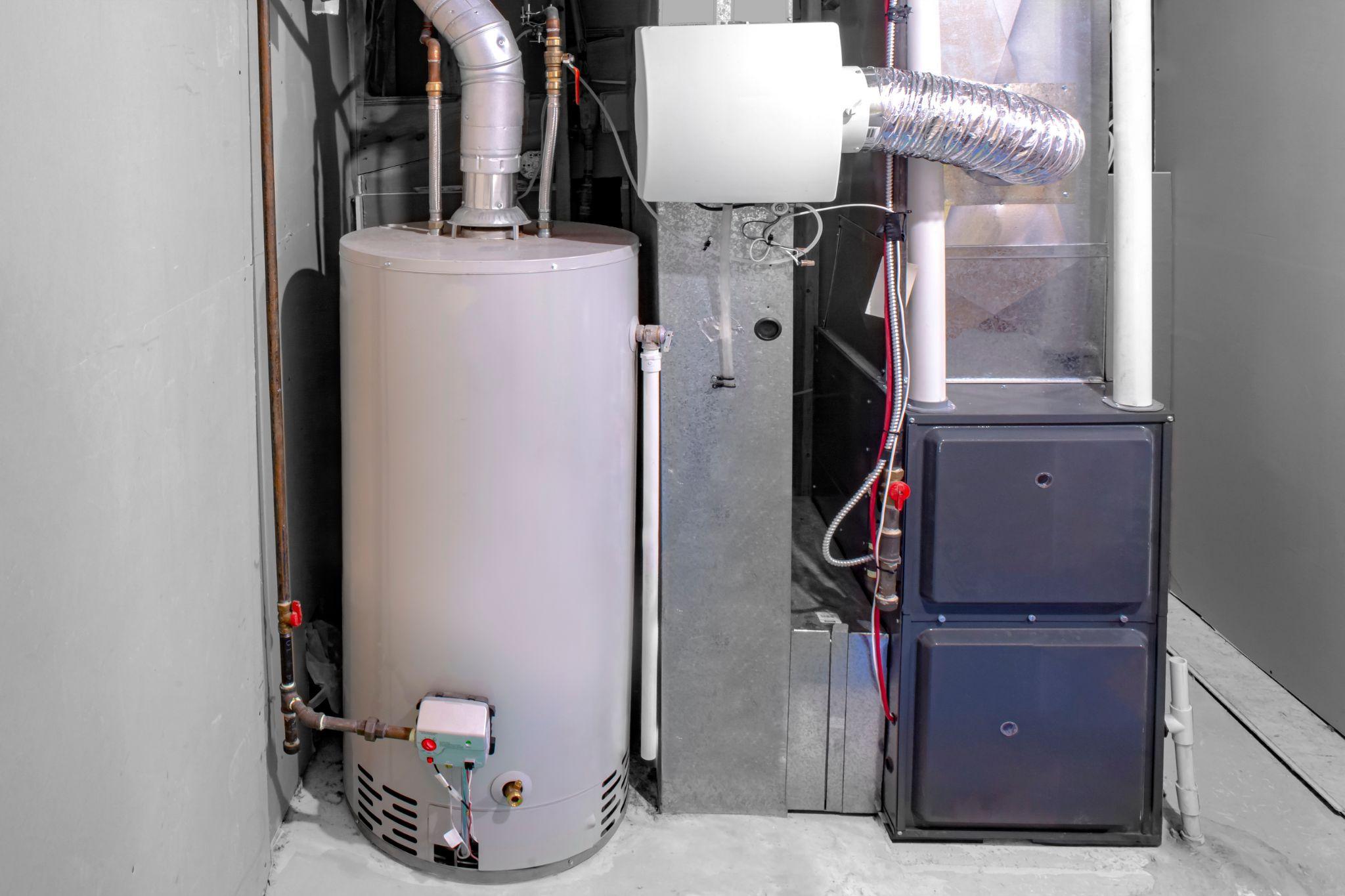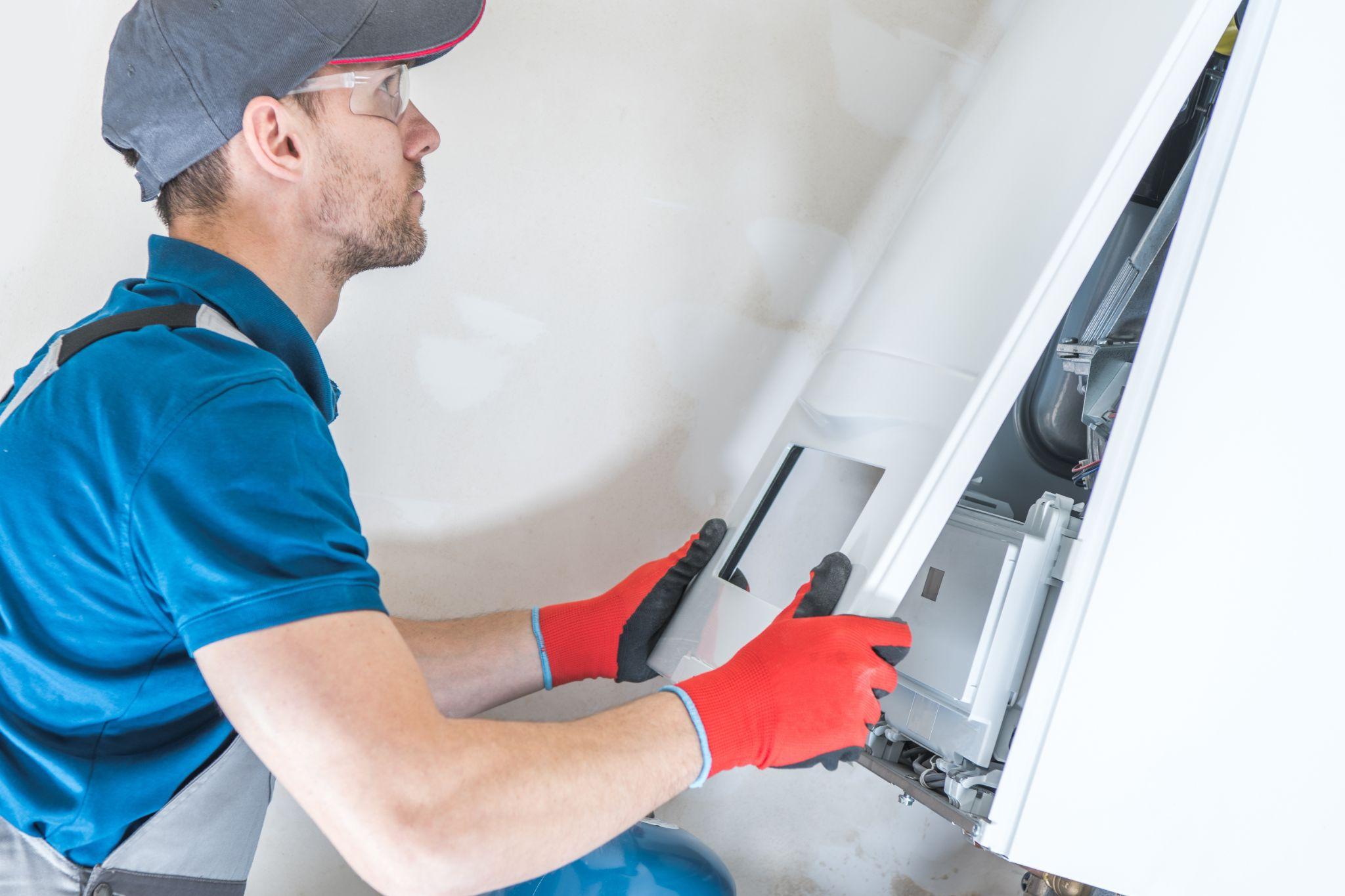Breaking Down the Types of Furnaces: Features and Benefits

When the chill of winter creeps into our homes, a reliable heating system becomes more than a comfort—it’s a necessity. Here at Christianson Air Conditioning & Plumbing, we understand the importance of a well-chosen furnace that not only keeps your home toasty but also aligns with your energy efficiency goals and budget.
Our comprehensive guide will walk you through the various types of furnaces, focusing on their fuel source, efficiency, and benefits, to help you find the best home furnace.
Understanding the Fuel Source
The fuel source is a fundamental aspect that differentiates the types of furnaces. The most common types include gas, oil, and electric furnaces, each with unique features catering to different needs.
Natural Gas Furnaces
Widely regarded for their efficiency, natural gas furnaces are a popular choice among homeowners. These furnaces utilize the readily available natural gas pipeline network, offering a cost-effective and energy-efficient heating solution. They are known for producing warm air that comforts your home swiftly, making them an excellent choice for those in colder regions.
Oil Furnaces
In areas where natural gas is not readily accessible, oil furnaces stand as a robust alternative. Although oil furnaces require on-site storage and have higher fuel costs, their high efficiency and longevity make them a worthwhile investment for many.
Electric Furnaces
Electric furnaces are celebrated for their simplicity and safety. They convert electric energy into heat, providing a clean and efficient way to warm your home. While the operating costs can be higher, especially in regions with expensive electricity, their minimal maintenance requirements and long lifespan make electric furnaces an attractive option for many.
The Common Types of Furnaces and Their Efficiency

When selecting a furnace, the term “high efficiency” is crucial. High-efficiency furnaces convert a greater proportion of their fuel source into heat, ensuring that your home stays warm without unnecessary energy wastage.
High-Efficiency Gas Furnaces
These furnaces boast an Annual Fuel Utilization Efficiency (AFUE) rating of 90% or higher, meaning they convert 90% or more of their fuel into heat. This efficiency is achieved through features like secondary heat exchangers and sealed combustion units.
Efficiency of Oil Furnaces
Modern oil furnaces have significantly improved in efficiency, with many models achieving an AFUE rating of 80-90%. Advanced features like high-pressure flame retention burners enhance their efficiency, making them a competitive option for heating.
Electric Furnace Efficiency
Electric furnaces can have nearly 100% AFUE ratings, as almost all the electricity they consume is converted into heat. However, the overall energy efficiency can vary depending on the source of the electricity and its cost in your area.
Features and Benefits Across Different Kinds of Furnaces
Each type of furnace brings a set of benefits tailored to specific needs and preferences:
- Gas Furnaces: Offer rapid heating and are cost-effective in areas with low natural gas prices. They’re suitable for large homes and those in colder climates due to their powerful heating capabilities.
- Oil Furnaces: Provide excellent heating capacity, ideal for regions with harsh winters. They’re durable and can be more economical where oil prices are competitive.
- Electric Furnaces: Stand out for their ease of installation, low upfront cost, and safety. They’re best suited for areas with mild winters or for homeowners prioritizing low maintenance and installation ease.
Choosing the Best Home Furnace for You
When evaluating a new heating system, it’s important to consider aspects such as your region’s climate, the availability of different fuels, and the cost of energy in your area. For instance, an electric furnace could be an ideal option for those looking for a reliable, efficient, and low-maintenance heating solution, particularly in regions where electricity is reasonably priced and the winters are not excessively harsh.

In contrast, for those in colder climates or areas with accessible natural gas, a high-efficiency natural gas furnace might be the most cost-effective and efficient choice. It’s crucial to weigh the initial investment against long-term operating costs and potential savings from reduced energy consumption.
Understanding the different kinds of furnaces, from gas oil to electric furnaces, and their respective features and benefits, is essential in selecting the right heating system for your home. Whether you prioritize energy efficiency, cost-effectiveness, or specific fuel sources, there’s a furnace type that meets your needs.
Ready to Upgrade Your Home Heating System?
Are you considering a new furnace but unsure where to start? Let Christianson Air Conditioning & Plumbing guide you through the process. Our team of licensed professionals is here to help you choose the perfect heating solution tailored to your home’s needs, ensuring you get the comfort, efficiency, and reliability you deserve. Contact us today to explore your options and take the first step toward a warmer, more energy-efficient home.



Sorry, comments for this entry are closed at this time.